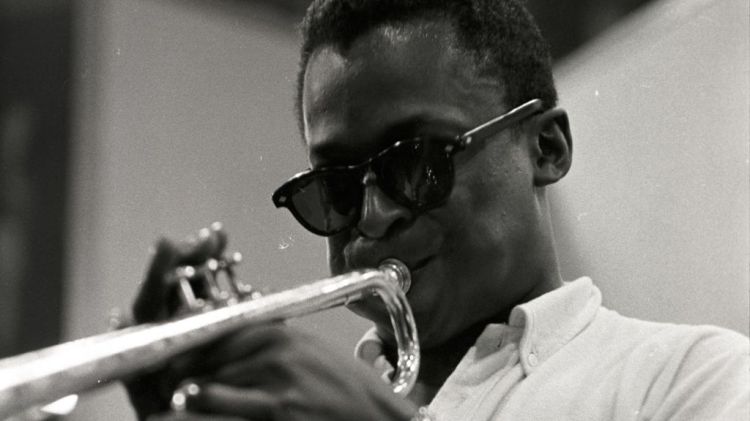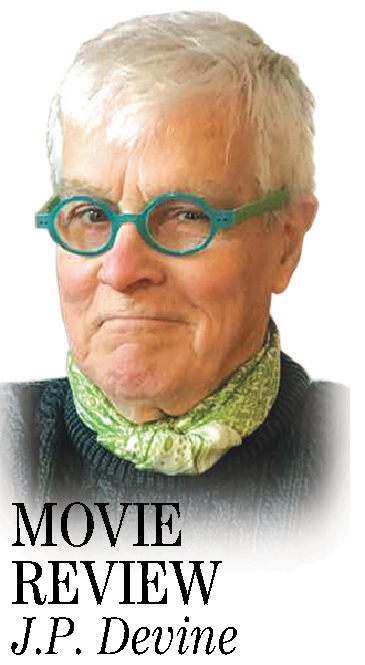The lights vary from deep blue to cobalt to red, and this rain of color cuts through the smoke and falls in patches across the stage.
A slender young black man steps out of the shadows into a triangle of this light, and up to the mic where he puts the mute into the bell of his trumpet.
He presses his fingers gently on the brass buttons, presses the bell right into the mic and softly blows, not like a wind, but like a nighttime summer breeze, like a mother blowing air into her baby’s mouth. He blows into the mouthpiece, and something called “Kind of Blue” is born. He is Miles Davis, and we’re at the front table trying to breathe.
If you’re of a certain age and were once a jazz aficionado, you probably remember the great trumpet player Miles Davis blowing out windows on his wild nights with Dizzy Gillespie and Charlie “Bird” Parker. I can’t blame you. Those were explosive jams.
Then things changed dramatically, when Miles, after a long road of great successes, angry interludes, pain and booze and drugs and mishaps, met arranger pianist Gil Evans, and in January 1949, along with Gerry Mulligan, recorded an album that became a classic and true game changer, “Birth of the Cool.” The colors of his life went from angry red to romantic blue and back again. Such was the human concerto called Miles.
It was at that session and for many club nights after, from New York to Paris, that Miles stepped into the blue light and played “Kind of Blue.” Everything changed, for Miles and the rest of us. He would go darker in the painful years to come with his frantic, angry “Bitches Brew,” but when I think of Miles, I think of “Kind of Blue.” It was when jazz became music for lovers.
It all came rushing back for this reviewer when I was assigned to screen American Masters’ documentary “Miles Davis: Birth of the Cool,” written and directed by Stanley Nelson.
Nelson doesn’t avoid the broken-glass edges of Davis when he points out that Miles was a “rageful fellow” who abused, both physically and emotionally, all who fell under his spell.
Nelson’s film is not all wine and roses. He hits the sweet white keys, but he avoids spending too much time in the darkness of Miles’s heroin habit and alcoholism, giving just enough to harden the edges.
It began in the black-and-white “Jim Crow” world of his childhood in East St. Louis and Afton, Illinois, where the documentary stops and becomes a full out movie. (Nelson adds a touch of magic here. Miles’ memories “spoken by him” are really done by actor Carl Lumbly, who eerily adapts Miles’ signature “sandpaper on rust” voice. It’s a trick well played and will haunt you.)
Davis was born in 1926 to a well-to-do family with the wealth created by a successful dentist, the “second richest” black man in Illinois, who bought his son a new trumpet when his mother wanted a violin for him. An argument started, and his father hit his mother and knocked out a few of her teeth. Miles witnessed that and other brutal family fights that shaped his life forever.
Nelson brings all of this important background to the fore, when we watch Miles move through his career, treating those who loved him with careless abandon. Nelson touches lightly on Miles’ love affairs and his time in Paris, where he improvised the soundtrack for Louis Malle’s dark film noir film “Elevator to the Gallows” with Jeanne Moreau. It’s brief but haunting, and we long for more of the same.
If you’ve come to see the greats, Jimmy Cobb is here, along with Lee Konitz, Herbie Hancock, Wayne Shorter, Ron Carter, Carlos Santana, The Roots, and Flea of the Red Hot Chili Peppers helping to assemble the snapshots.
This is no dry documentary. Nelson puts it all together like a visual love song that hits all the right notes, enhances the great ones and doesn’t skip any of the sour ones. It’s a full, all-star color Oscar night tribute to a legend, magical and evocative — not to simply watch, but virtually participate in.
Each participant, the still-living and those gone to bandstands on the other side, sit in front of the camera pulling still-vivid memories from their past glories, while now and then an eye wets, a voice chokes.
Each has a piece of the puzzle to put together. One says, “We didn’t want to just listen to Miles, we wanted to be Miles.” If Miles Davis’ music was part of your youth, you’re invited once again to come and hear Miles Davis, sit at the front table and try to breathe.
J.P. Devine, of Waterville, is a former stage and screen actor.
Send questions/comments to the editors.




Success. Please wait for the page to reload. If the page does not reload within 5 seconds, please refresh the page.
Enter your email and password to access comments.
Hi, to comment on stories you must . This profile is in addition to your subscription and website login.
Already have a commenting profile? .
Invalid username/password.
Please check your email to confirm and complete your registration.
Only subscribers are eligible to post comments. Please subscribe or login first for digital access. Here’s why.
Use the form below to reset your password. When you've submitted your account email, we will send an email with a reset code.